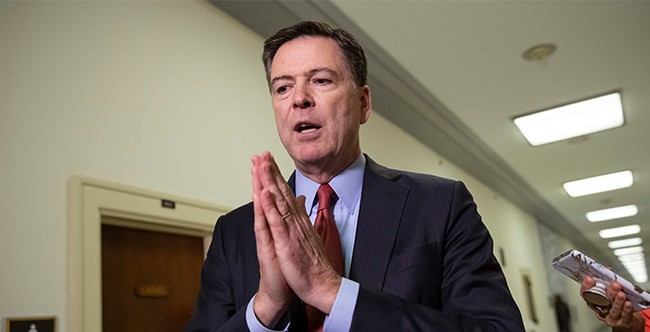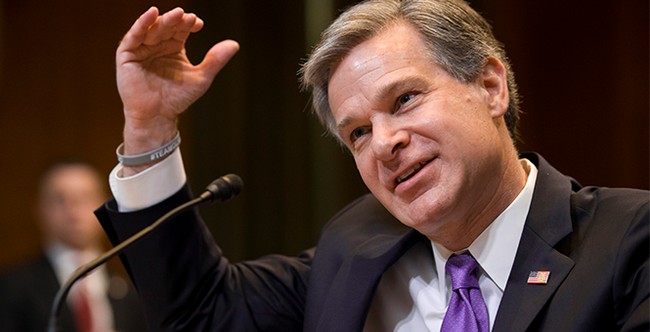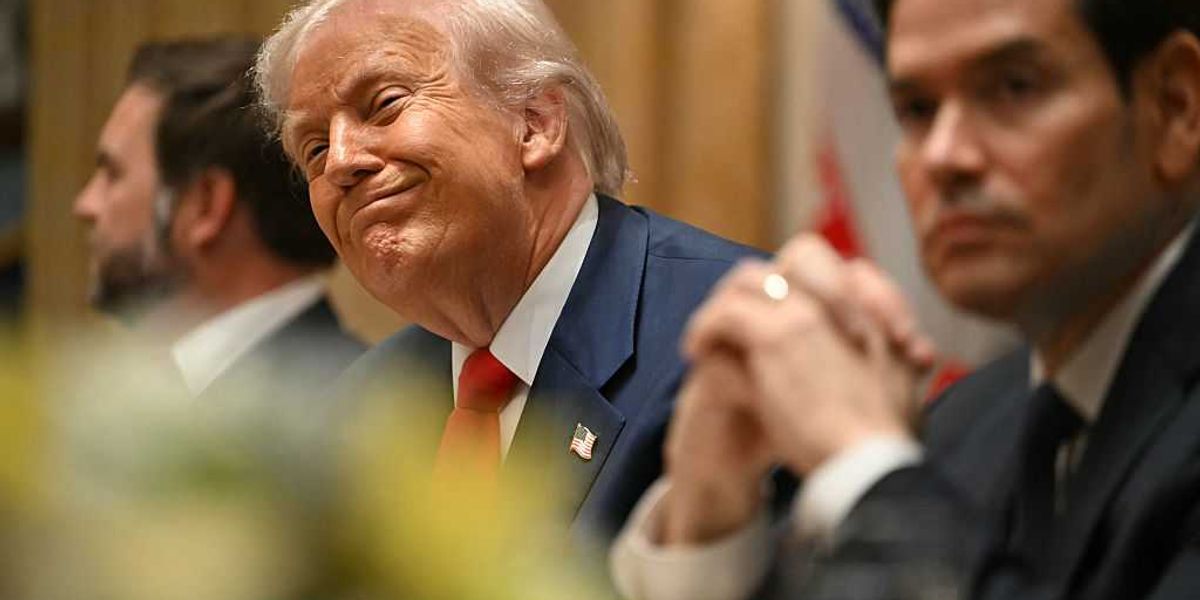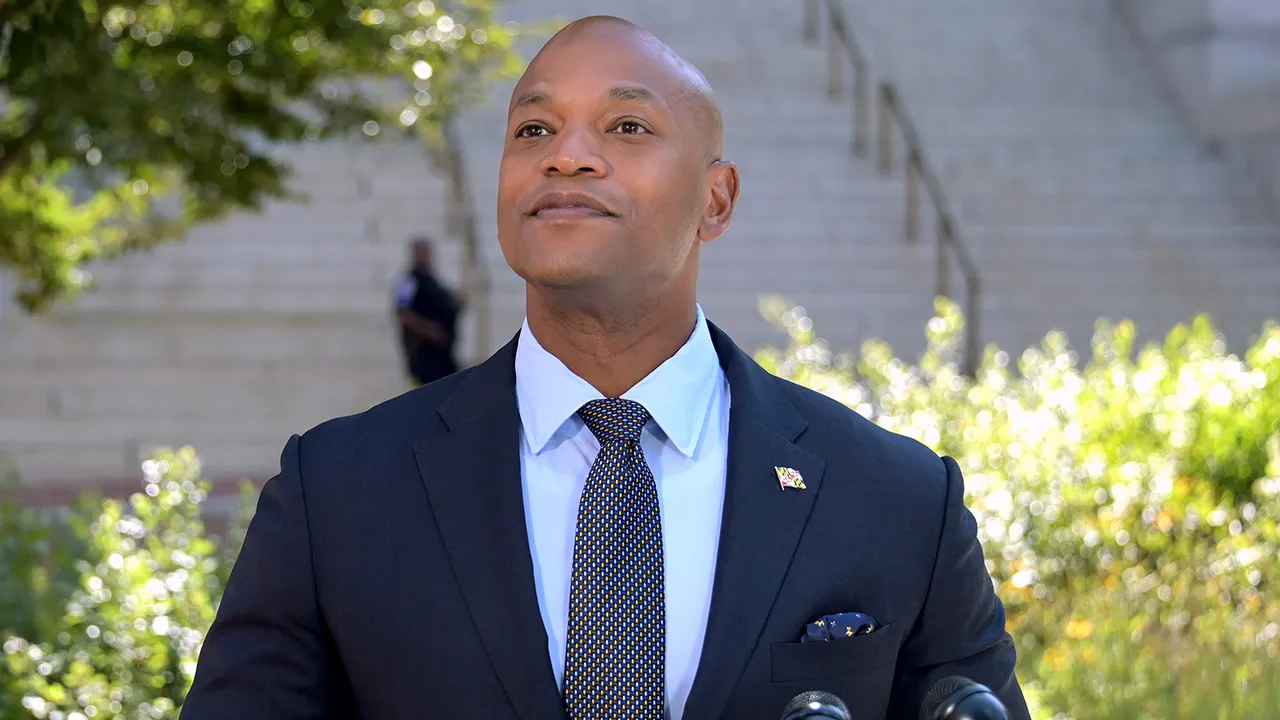There’s bad news and good news in these rulings from Judge Cameron McGowan Currie. The bad news: the federal indictments against James Comey and Letitia James have been dismissed. The good news: the DoJ can refile once the Senate confirms a properly appointed US Attorney for the Eastern District of Virginia.
However, there’s bad news on that point as well:
A federal judge on Monday dismissed criminal charges against both former FBI Director James Comey and New York Attorney General Letitia James, ruling that the prosecutor President Trump chose to bring the cases was unlawfully appointed.
The decisions from Judge Cameron McGowan Currie deal a significant setback to the Justice Department, which brought charges against Comey and James within weeks of Trump publicly calling on Attorney General Pam Bondi to prosecute several of his prominent critics.
Comey and James both contested Lindsey Halligan’s appointment as unlawful while also pointing to Trump’s public statements to argue that his prosecution was rooted in the president’s desire for retribution against a perceived adversary.
That’s actually another piece of bad news. Judge Currie didn’t actually rule on the question of retribution in today’s rulings. The motions for dismissal in both cases on the issue of retribution have yet to be decided. If Currie decides that the prosecutions were the result of retribution, she may well decide to dismiss either or both cases with prejudice, which would end any more efforts to prosecute either — pending appeals on those points, of course.
This also relates to the other bad news in Comey’s case, specifically. The statements that Halligan cited in the prosecution are now more than five years old, which means that the statute of limitations applies. The DoJ barely beat that statute in filing the case in September. Even if Currie denies the motion to dismiss on the issue of retribution, the DoJ will have to issue a new indictment after the expiration of the limiting statute, and that would almost certainly spell an end to this prosecution. The DoJ can complain all they want about the dismissal, but they had several months this year to pursue the case against Comey and waited until almost literally the last moment.
Today’s dismissals are based on the Trump administration’s failure to get a US Attorney appointed and confirmed in time. They appointed an interim US Attorney early on, but federal law only allows interim appointments to continue for 120 days. After that, the judicial circuit appoints an interim US Attorney, an issue that the White House is already fighting in other jurisdictions. Currie refuses to accept any indictments from a second interim US Attorney appointed by Trump, calling it “defective”:
According to the Government, this case is “simple.” ECF No. 137 at 8. In its view, the “one and only” limitation on the Attorney General’s authority to appoint interim U.S. Attorneys under section 546 is subsection (b), which bars the Attorney General from appointing anyone whom the Senate has refused to confirm. Id. at 3, 8, 15. “Nothing in the text,” it continues, “explicitly or implicitly” precludes the Attorney General from making multiple interim appointments during a vacancy. Id. at 8. Thus, it concludes, because “the Senate has not refused advice and consent to Ms. Halligan,” the Attorney General “lawfully appointed [her] as interim U.S. Attorney” on September 22. Id. at 8.
Mr. Comey counters that section 546 “limits the total tenure of the Attorney General’s interim appointments to 120 days” and therefore “precludes an additional appointment by the Attorney General after the expiration of that 120-day period.” ECF No. 60 at 16. Accordingly, he argues, Ms. Halligan’s appointment was unlawful because the district court possessed the “exclusive authority to appoint an interim U.S. Attorney” once Mr. Siebert’s appointment by the Attorney General expired on May 21. Id. at 17. Mr. Comey has the better reading of the statute. …
Section 546 is unambiguous. Subsection (a) begins by authorizing the Attorney General to “appoint a United States attorney for the district in which the office of United States attorney is vacant.” 28 U.S.C. § 546(a). Subsection (c)(2), however, imposes a time limit on appointments made by the Attorney General. It specifies that “[a] person appointed as United States attorney” under the statute “may serve until . . . the expiration of 120 days after appointment by the Attorney General.” Id. § 546(c)(2). Subsection (d) then provides a single option for how subsequent interim appointments may be made: “If an appointment expires under subsection (c)(2), the district court for such district” — and only the district court — “may appoint a United States attorney to serve until the vacancy is filled.” Id. § 546(d).
Attorney General Pam Bondi tried to get around Section 546 by making Halligan a “special attorney” for the DoJ as well as an interim prosecutor. Currie rejected that as well, noting that Bondi only did that after the indictment was filed and attempted to make it retroactive in an attempt to cure the Section 546 defect:
In support of this argument, the Government relies on the Attorney General’s October 31 Order, which purported to retroactively appoint Ms. Halligan to the “additional position” of “Special Attorney,” effective September 22, 2025 — three days before Mr. Comey was indicted. Att’y Gen. Order No. 6485-2025. Although the Attorney General has “the power to appoint subordinate officers to assist [her] in the discharge of [her] duties,” United States v. Nixon, 418 U.S. 683, 694 (1974), the Government has identified no authority allowing the Attorney General to reach back in time and rewrite the terms of a past appointment.
Nor can the variation between the September 22 and October 31 Orders be dismissed as a mere “paperwork error,” as suggested by the Government. ECF No. 137 at 28. The September 22 Order was unambiguous. The Attorney General stated she was appointing Ms. Halligan under 28 U.S.C. § 546 to “serve as the United States Attorney for the Eastern District of Virginia . . . for the period of one hundred and twenty days or until replaced in accordance with law, whichever occurs first.” Att’y Gen. Order No. 6402-2025. The October 31 Order then purported to appoint Ms. Halligan to an entirely different position (Special Attorney), under entirely different statutes (28 U.S.C. §§ 509, 510, and 515). Att’y Gen. Order No. 6485-2025. I reject the Attorney General’s attempt to retroactively confer Special Attorney status on Ms. Halligan. Regardless of what the Attorney General “intended,” ECF No. 137 at 23 (emphasis omitted), or “could have” done, id. at 28, the fact remains that Ms. Halligan was not an “attorney authorized by law” to conduct grand jury proceedings when she secured Mr. Comey’s indictment, 18 Fed. R. Crim. P. 1(b)(1)(D), 6(d)(1).
What does this mean? At one level, it demonstrates a rather high degree of incompetence. At the most basic level, Halligan did not have the authority to issue an indictment on 22 September, as her appointment as interim US Attorney was invalid under Section 546, and her appointment as “special attorney” didn’t take place until weeks later. All of this will likely become relevant when it comes to deciding on the motion that accuses the DoJ of acting out of malice and retribution too, because it certainly looks like Bondi tried playing games to respond to Donald Trump’s public demands to prosecute both Comey and James.
Currie isn’t the only judge to signal that these prosecutions were in serious danger, as Mediaite briefly notes:
Halligan has also been accused of improperly presenting evidence to the grand jury that indicted Comey. Last week, U.S. District Judge Michael Nachmanoff questioned “whether the entire grand jury ever saw the two-count indictment that a magistrate judge received after the grand jurors rejected one of three charges” presented by Halligan, reported Politico at the time. The case was already under heavy scrutiny as a different judge warned last Monday of apparent “government misconduct” in charging Comey.
Halligan had never tried a federal case before, and her experience was largely in real estate and insurance cases.
If anyone expects the appellate circuits to intervene, that last point should cast some cold water on those hopes. These two cases have all sorts of irregularities and arguable incompetence woven through them, and appellate courts are not likely to rescue the DoJ from its own bungling. Halligan and Bondi have given appellate jurists plenty of reasons to wash their hands of this mess.
In the end, the Comey prosecution looks dead in the water. The Tish James prosecution might be salvageable, assuming that her motions to dismiss for malicious prosecution don’t result in a dismissal with prejudice. Given the machinations at the DoJ in producing these indictments – and Trump’s very public demands for these prosecutions for purposes of political retribution – I’d put the chances of salvaging either case somewhere between slim and none.
Update: John Hinderaker concurs to a point, although he’s more hopeful on the James prosecution:
The question is not free from doubt, but I think the court’s ruling is probably correct. Judge Currie cites relevant legislative history, and the ultimate point of § 546 (c) and (d) is, I think, to prevent presidents from circumventing the requirement that U.S. Attorneys be confirmed by the Senate by making interim appointments that could last indefinitely. It is notable, however, that there have been several instances in which presidents (Clinton and Bush) have “stacked” interim appointments in the manner now argued for by the Trump administration.
Having found that Halligan’s appointment was invalid, and having noted Halligan’s personal role in procuring the Comey indictment, Judge Currie concluded that the appropriate remedy is dismissal of the indictment without prejudice. While I have only read the Comey order, I take it that an identical order was entered dismissing the Letitia James indictment.
The administration’s rush to appoint Halligan and procure a grand jury indictment arose from the fact that the statute of limitations was about to expire on the perjury charge that the administration wanted to bring against Comey. The statute has now run, so it appears that Comey is off the hook. The James prosecution is still good, and I assume it will be renewed.
Join our VIP Membership program! Choose VIP to support Hot Air and access our premium content, VIP Gold to extend your access to all Townhall Media platforms and participate in this show, or VIP Platinum to get access to even more content and discounts on merchandise. Use the promo code FIGHT to join or to upgrade your existing membership level today, and get 60% off!
Read the full article here






![Charlie Sheen Rejects Hollywood’s Groupthink, Calls Out Legacy Media to Megyn Kelly [WATCH] Charlie Sheen Rejects Hollywood’s Groupthink, Calls Out Legacy Media to Megyn Kelly [WATCH]](https://www.boredtrashpanda.com/wp-content/uploads/2025/11/2025.11.24-02.53-boredtrashpanda-69247152a6341.jpg)
![Tone-Deaf Schumer Starts Shooting Presser With Buffalo Bills Shoutout [WATCH] Tone-Deaf Schumer Starts Shooting Presser With Buffalo Bills Shoutout [WATCH]](https://www.lifezette.com/wp-content/uploads/2025/10/2025.10.16-06.19-lifezette-68f1372d49748.jpg)




![JD Vance Claps Back After Reporter Raises ‘Conspiracy Theorist’ Label [WATCH] JD Vance Claps Back After Reporter Raises ‘Conspiracy Theorist’ Label [WATCH]](https://www.lifezette.com/wp-content/uploads/2025/08/2025.08.10-06.38-lifezette-6898e73082350.jpg)